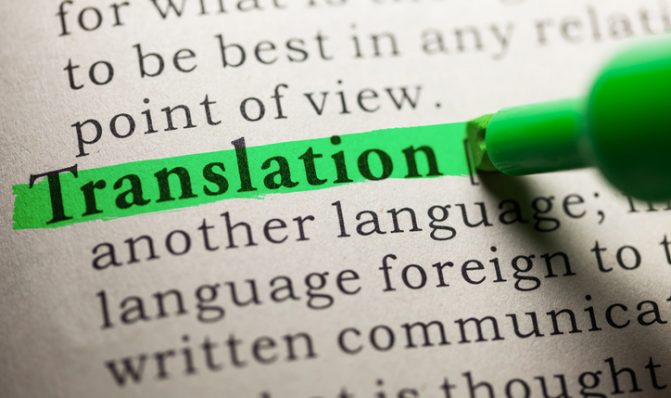The Necessity of Subject Matter Expertise for Academic Translation | Lex Academic Blog

Language tutors frequently present their students with amusing translation blunders, to instil in them a sense of the importance of accurate translation. Mistranslations, which can have serious consequences, are usually caused by:
- lack of proficiency in the source language (the language of the text being translated) or target language (the language into which the translator is translating)
- unawareness of the source or target culture
- unfamiliarity with the subject matter.
Professional bodies such as the Institute of Translation and Interpreting recommend the use of professional translators to avoid these problems. Professional translators generally translate into their ‘own’ language, sometimes called their ‘native language’ or ‘mother tongue’ (the problems with these terms are the subject of another discussion). Translation into a second language occurs only when the source or target language is not widely spoken. Cultural awareness is developed through first-hand experience of the target culture; indeed, many translators live abroad. This post will focus on the last of the three causes of linguistic infelicities: lack of subject matter expertise.
A translator who is a subject matter expert has specialist knowledge of the material being translated. For example, the translator of a legal contract may also be a practising lawyer. In an academic context, a translator who is a subject matter expert typically has a PhD in a relevant discipline, and is therefore cognisant of the discipline’s lexicon. Mistranslations are more likely to occur when a translator without training in, or practical experience of, the subject matter is struggling to fully grasp what the author wants to say. There comes a point where linguistic proficiency is not enough, where translation requires understanding on a conceptual as well as linguistic level. There comes a point, in sum, where translators also need to be subject matter experts.
So where is that point? When do you need a subject matter expert? If you are thinking of hiring a translator, consider whether:
- the text you want translated is going to be published
- the text contains subject-specific terminology with which non-specialists are unlikely to be familiar
- your target reader is educated in the subject matter.
If any of these points apply to you, you probably need a subject matter expert. They can bond with the text more closely than a generalist can because they are educated in the subject matter and understand its terminology. They may even have published on the subject themselves. They can therefore integrate subject-specific terminology into the translation, rather than replacing it with more widely understood but less precise vocabulary. A subject matter expert can produce a more accurate, idiomatic, and professional translation which readers educated in the field will appreciate, value, and take seriously. In an academic context, a less than polished approach has the potential to cause embarrassment for the author of the original text.
As well as a more accurate translation, working with a subject matter expert offers several advantages:
- Time – Because subject matter experts are familiar with subject-specific terminology, they will spend less time than a generalist would looking up terms in a technical dictionary, meaning a faster turnaround time for the client.
- A reader’s perspective – Subject matter experts are likely to have a background similar to the target reader’s. This enables them not only to translate the text more accurately, but to query technical content that is factually inaccurate or unclear.
- Motivation – If a translator has invested the time and energy needed to become a subject matter expert, then it is safe to assume they have considerable personal interest in the subject. The enjoyment they will get from translating a text related to their area of expertise will increase their motivation to do a good job.
Broadly speaking, if your text is aimed at a specialist audience, it is worth working with a subject matter translator – for a more accurate and professional translation, and for peace of mind.
Be notified each time we post a new blog article